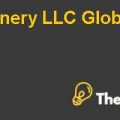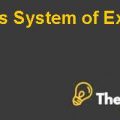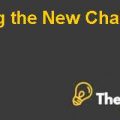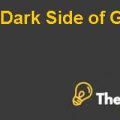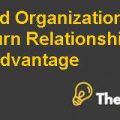Through The Eyes Of A Whistle Blower Case Solution
Question 1
Who is Sherry Hunt? What is the challenge she faces? And what are her values and motivations at this moment in time?
Sherry Hunt is the Vice President and underwriter at Mortgagee. She used to work hard, always prided herself on following the rules and built a successful and as long career in the mortgage business. She began her career as a mortgage processor in a small bank in Alaska. It was in November 2004, when she accepted the post of chief underwriter and vice president.
Sherry Hunt was facing a very critical challenge while working at Mortgagee and her situation has been worsening as the time moves on. The team, which has been led by Hunt, always found that all the loans, which were being approved by Ci ti and had already been purchased by the lenders, were found to have defects in them. It has been found that that the loan officers sometimes filled in the numbers themselves. For instance, when they were filling out the application forms and the stated income loans, which had no back up documentation, then they would think by themselves what level of income they need to fill in so that the loan is approved according to the credit policy of the bank. Whether the borrower earned that income or not, the loan officers would write that income in the loan application.
When the loan officers were informed about their mistake, they fought with the underwriter about the found the problems. They never took Hunt seriously. The culture of Ci ti was another problem for Hunt especially the constant changes in the upper management and squashing of the policies, which got into the way of increasing the loan rates. Hunt has been isolated in the quality control unit where she witnessed several frauds taking place at Ci ti. Around 80 to 90 percent of the loans were confirmed as fraud by Hunt and her team.
Now the challenge, which was faced by Hunt, was how to take a stand against the fraud taking place at Ci ti, whom should she inform and how. She was a woman who worked in this business since 1986 and she had always stood by the book and followed the rules strictly. Her values guided her motivations and she never wanted to take decisions, which are not moral and unethical. However, her motivation right now to make the right decision depended on her job security. She had been applying for jobs for almost a year but never heard back. Therefore, she had to take a right stand now and make a clear, ethical and moral decision.
Question 2
Why do you think nobody has within Citigroup- except Bowen and Hunt - has blown the whistle thus far, when fraud and misreporting were pervasive (e.g., QA’s reporting in Ci ti's Irving Office: QC’s reporting in Ci ti's Fallopian, MO, and Ann Arbor, MI Offices; fraudulent loans being submitted from Ci ti's correspondent lenders across the nation)?
There are a number of reasons due to which nobody within Citigroup except, Bowen and Hunt had blown the whistle so far. First, the compensation system was responsible for this. To meet the high demands of the investors and their trajectory for the mortgage backed securities, Ci ti had incentives in place. The salaries and the bonuses of the employees, the loan officers and the senior management were all dependent on the percentage of the loans approved. Even the bonus for Hunt was based on the number of the loans processed(Black, 2015). Therefore, this was a major drawback of the compensation system at Ci ti because the commission should never be paid to the loan officers based on the number of loans approved. It can easily lead people to make decisions, which are not moral and ethical to get a paycheck.
The second reason behind the lack of whistle blowing from the other executives at Citigroup was the constant change in the upper management of the company. This situation can be compared to a box that you have,in which, you throw all the upper management and then dump it, like a dice game. Wherever they land is their new specialty even if they did not have any experience in that area. This was one of the major reasons for the lack of whistle blowing because most of the executives were not aware of their job responsibilities or even understood their tasks.
Through The Eyes Of A Whistle Blower Case Harvard Case Solution & Analysis
Lastly, the financial crisis and the bubble phase of the real estate market was another important reason(Nicolas, 2017). The financial crisis had hit the mortgage industry hard and there were not many jobs available in the market. This was also one of the reason due to which Hunt was highly concerned because there were not many jobs for her qualification in the market. Therefore, all those, which were aware of the fraud and the defects in the internal control of Citigroup, remained silent...............
This is just a sample partial case solution. Please place the order on the website to order your own originally done case solution.



